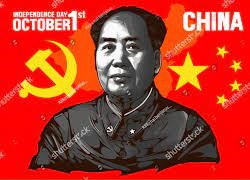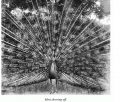Amid fears of new personality cult in China, Xi Jinping to pay homage at Mao mausoleum

As authorities in Beijing announced the temporary closure of the Mao Zedong mausoleum on Tiananmen Square, reportedly to allow Chinese Communist Party leader Xi Jinping to pay homage on Mao’s 130th birth anniversary, state media moved to elevate Xi’s revolutionary father’s role in the past four decades of economic reform, eclipsing their key architect Deng Xiaoping.
The closure “due to operational requirements” for three days including the Dec 26 anniversary of the late supreme leader’s birth on Dec. 26, comes amid growing fears of a Mao-style personality cult around Xi, as institutions and political figures compete to show the utmost loyalty to Xi and his personal brand of political ideology.
The reports, which described the visit as part of efforts to boost Xi’s “red credentials,” emerged as a lengthy article lauding Mao’s “great achievements and noble demeanor” appeared in the party’s ideological magazine, Qiushi.
The article also placed the past 45 years of economic reform generally credited to late supreme leader Deng Xiaoping in the context of a bigger picture – one of “progress” towards socialist modernization that has yet to be achieved, in further confirmation that Xi likely plans to leave the Deng Xiaoping reform era behind while claiming to be developing it further.
“Today, the best commemoration of Comrade Mao Zedong is to inherit and develop the great cause that he and his comrades worked hard to found, and to write a new historical chapter at a new historical starting point,” the article says.
The article came after a Dec. 18 documentary from state broadcaster CCTV lauded Xi’s father, the revolutionary Xi Zhongxun (1913-2002), as a key architect of “reform and opening up,” lavishing more praise on him on the 45th anniversary of the new policy than on late supreme leader Deng, who is generally credited with the move.
Playing the Xi Zhongxun card
It claims the elder Xi called on China to commit to economic reforms and greater openness after witnessing the mass exodus of people from Guangdong to Hong Kong, then a booming port and British colony, during the Cultural Revolution of 1966-1976.
Earlier propaganda films have credited Deng with being the “old man who drew a ring on the South China Sea coast,” founding the Special Economic Zone, hard on the border with Hong Kong.
The film seeks to bolster the reformist credentials of both the elder and the younger Xi, with photos of his family seeing him off at the airport when the elder Xi was posted to Guangdong in 1978, and later photos of Xi Jinping accompanying his father on an inspection tour in the southern province.
Feng Chongyi, a professor of Chinese Studies at the Sydney University of Technology, said Xi Zhongxun did indeed win something of a reputation as a reformist for his more relaxed attitude to people fleeing to Hong Kong.
“When Xi Zhongxun set up the special economic zone in Guangdong, he allowed Hong Kong capital in, while easing off a little on those people who were fleeing to Hong Kong, which meant that not all of them were shot dead on sight,” Feng said.
“It’s fine to say that he was in the reform category, but in no way was he a leader of economic reforms, not at all,” he said. “[Former Guangdong party secretary] Ren Zhongyi … really did have all the theory and a systematic plan, but Xi Zhongxun wasn’t on the same level.”
“Xi Jinping is trying to play the Xi Zhongxun card to try to trick foreign investors back [to China],” Feng said.
‘Political deception’
Xia Ming, professor of politics at New York’s City University, said Xi is actually steering China in the opposite direction to Deng’s economic reforms, while still claiming to continue them.
“His political reforms have no substance – on the contrary, he has eliminated the only real highlight of Deng’s political reforms – the abolition of lifelong tenure for China’s leaders,” Xia said, referring to Xi’s abolition of presidential term limits leading him to be nodded through for a third and possibly indefinite term in office in October 2022.
“Everything Xi Jinping says is a kind of political deception,” he said.
According to current affairs commentator Xu Quan, however, many people are still very willing to idolize Mao.
“[Many still believe that] there was no corruption in the Mao era, and no gap between rich and poor,” Xu said. “Mao symbolizes this perfectly in the imagination of a considerable number of Chinese people.”
Current affairs commentator Cai Shenkun said Xi tends to reach for Mao as a political symbol when he runs into difficulty, but warned that integration into the international community will be impossible if Mao’s legacy isn’t properly laid to rest.
“Mao Zedong relied on violent revolution to launch his career, and any political power that is gained in that way must use violence to maintain itself,” he said.
“China is heading for a dead end today.”
‘In the shadow of Mao Zedong Thought’
Current affairs commentator Ma Ju said Xi needs to elevate Mao in order to claim his own “red” credentials.
“Xi Jinping’s elevation of Mao Zedong is very consistent with his personal values,” Ma said. “The Cultural Revolution started when he was 13 years old, and he was sent down to the countryside at 16.”
“His formative years were spent in the shadow of Mao Zedong Thought, so his narratives depend on that model,” he said.
In Beijing, meanwhile, people were getting ready for heavier restrictions on the already tightly controlled Tiananmen Square.
A member of staff at an eatery not far from Tiananmen Square said local people have been warned not to gather on the square on Dec. 26 in a notice from their local neighborhood committee.
“There will be an important event taking place at the Mausoleum on Dec. 26, and residents should not gather for celebrations in Tiananmen Square at that time for fear of accidents due to large crowds,” the notice said.
The “important event” consists of a personal visit to the Mausoleum by Xi Jinping, Hong Kong’s pro-China Sing Tao Daily newspaper reported.
“On the morning of Dec. 26, President Xi Jinping is expected to lead central government leaders in paying homage to Mao Zedong’s remains at the Mausoleum,” the paper said.
Xi will then host a “symposium” at the Great Hall of the People nearby, where he will deliver a speech “speaking highly” of Mao and his legacy.
Xi also paid his respects to Mao on the eve of massive celebrations of the ruling Chinese Communist Party’s 70th anniversary in power in 2019, bowing three times in front of Mao’s statue on Tiananmen Square.
- RFA report, Dec 22, 2023 https://www.rfa.org/english/news/china/xi-mao-cult-12222023121206.html
-
Book Shelf
-
 Book Review
DESTINY OF A DYSFUNCTIONAL NUCLEAR STATE
Book Review
DESTINY OF A DYSFUNCTIONAL NUCLEAR STATE
- Book ReviewChina FO Presser Where is the fountainhead of jihad?
- Book ReviewNews Pak Syndrome bedevils Indo-Bangla ties
- Book Review Understanding Vedic Equality….: Book Review
- Book Review Buddhism Made Easy: Book Review
- Book ReviewNews Elegant Summary Of Krishnamurti’s teachings
- Book Review Review: Perspectives: The Timeless Way of Wisdom
- Book ReviewNews Rituals too a world of Rhythm
- Book Review Marx After Marxism
- Book Review John Updike’s Terrorist – a review
-
-
Recent Top Post
-
 NewsTop Story
Pope Francis dies: an unconventional pontiff who sought to modernise Catholicism
NewsTop Story
Pope Francis dies: an unconventional pontiff who sought to modernise Catholicism
-
 CommentariesTop Story
India’s Migration Dilemma
CommentariesTop Story
India’s Migration Dilemma
-
 Commentaries
Crowd Management Blues
Commentaries
Crowd Management Blues
-
 Meher Baba SpeaksNews
Meher Baba Loved Them Too…
Meher Baba SpeaksNews
Meher Baba Loved Them Too…
- Commentaries Record Pentagon spending bill and America’s hidden nuclear rearmament
-
 CommentariesNews
Ides of trade between India and Pakistan
CommentariesNews
Ides of trade between India and Pakistan
-
 Commentaries
How sustainable is the rhetoric of India-China Bhai-Bhai
Commentaries
How sustainable is the rhetoric of India-China Bhai-Bhai
-
 CommentariesTop Story
New Set of Diplomatic Strains with Canada
CommentariesTop Story
New Set of Diplomatic Strains with Canada
-
 News
Ratan Tata’s Legacy
News
Ratan Tata’s Legacy
-
 Commentaries
India’s Strategic Push on the World Stage
Commentaries
India’s Strategic Push on the World Stage
-
AdSense code

















